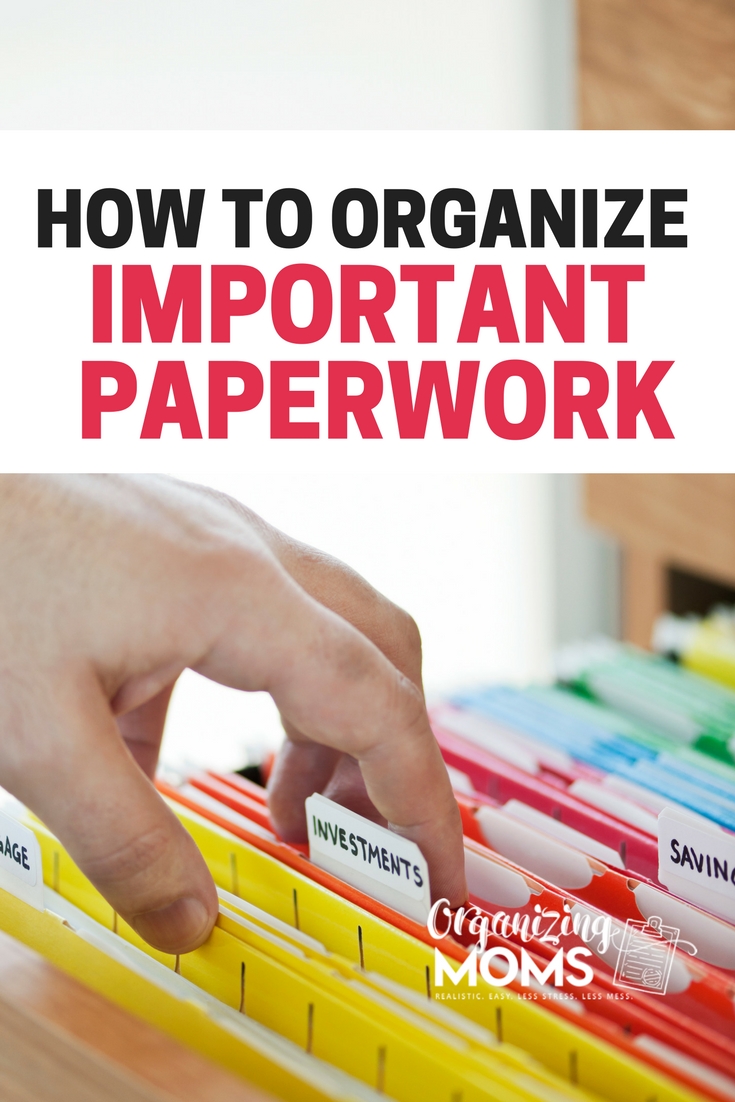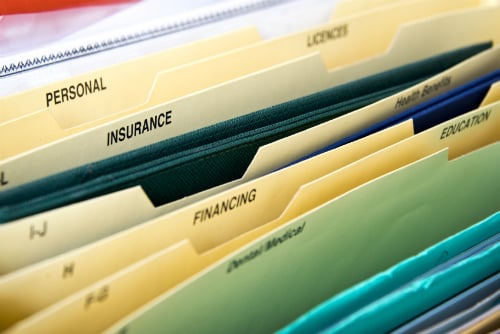Find Your Paperwork Easily: Best Locations Revealed

Organizing and storing important documents is crucial for any well-managed household or office. From birth certificates to bank statements, keeping paperwork in order not only ensures easy access but also minimizes clutter. But where should you keep these documents for optimal retrieval and security? This guide will explore the best locations for storing your paperwork, offering tips on organization and security measures to keep your documents safe and accessible.
Paperwork Organization: The Basics

Before diving into where to store your paperwork, understanding how to organize it can make retrieval much easier:
- Categorization: Sort your documents into categories like financial, medical, legal, and personal.
- Use Labeling: Clearly label every folder or box to indicate what it contains. A label maker can be invaluable for this task.
- Digital Backups: Digitize important documents and store them on secure cloud storage or external drives for redundancy.
Best Locations for Paperwork Storage

Home Office


If you have a designated home office, this is an ideal location for keeping important paperwork:
- File Cabinets: Use locking file cabinets to store sensitive documents securely.
- Shelving Units: Display non-sensitive items like manuals or public documents on open shelving for quick access.
- Shredding: Keep a shredder nearby for disposing of documents that are no longer needed.
Safe or Safe Box


When it comes to irreplaceable or highly sensitive documents:
- Fireproof: Invest in a fireproof and waterproof safe.
- Accessibility: Ensure that your safe is easily accessible but well-hidden or secured.
- Combination Lock: Use a combination lock for added security. Remember to keep your combination in a safe digital storage or with a trusted individual.
Bedroom or Master Closet

A bedroom, especially one with a master closet, offers privacy and security:
- Integrated Safe: Some closets come with built-in safes or space for one to be added.
- Drawer Organizers: Use drawer organizers for less sensitive documents, but keep them locked if possible.
Living Room or Family Room

If your home office isn’t the ideal space for all your paperwork, consider:
- Locking File Cabinets: Similar to the home office, but ensure they blend with the room’s aesthetics.
- Console Tables: Place documents in locked drawers or compartments within these tables.
Attic or Basement

These areas are great for long-term storage of less frequently accessed documents:
- Climate Control: Ensure the area is climate-controlled to prevent moisture and temperature damage.
- Security: Lock boxes or safes are advisable, considering the potential for flooding or break-ins.
⚠️ Note: Always check for leaks or signs of humidity before storing documents here. Use sealable boxes to keep papers safe from environmental hazards.
Security Considerations

Here are some additional security tips for storing your documents:
- Insurance: Consider getting insurance for valuable documents or important personal records.
- Alarms and Security Systems: Install an alarm system or enhance your home security where documents are stored.
- Limited Access: Only you and trusted individuals should have access to where documents are kept.
Organizing Tips for Efficient Storage

To make retrieval of documents easier:
- Alphabetical Order: Within each category, organize documents alphabetically or chronologically.
- Color Coding: Assign colors to different document types for visual cues.
- Checklists: Maintain an inventory checklist of documents to keep track of what you have and where it’s stored.
Having the right location for storing your paperwork is fundamental in maintaining an organized life, whether at home or in the office. By choosing secure, accessible, and suitable spots for your documents, you ensure not only their safety but also the peace of mind that comes with knowing you can find them when you need them. Remember, the key to effective paperwork storage isn't just about the location but also about how you organize and secure your documents. With a well-thought-out strategy, your important papers will be in order, protected, and easily retrievable whenever necessary.
What are the best materials for storing important documents?

+
Acid-free boxes and folders are recommended as they prevent paper from yellowing or deteriorating over time. Plastic document boxes or archival-quality containers are also good options for long-term storage.
How often should I review my documents for organization?

+
At least once a year, consider reviewing your documents to ensure they are still relevant, up-to-date, and properly categorized. This helps in decluttering and keeping your storage efficient.
What should I do with documents I no longer need?

+
Securely shred any documents containing personal or sensitive information. For other papers, recycle them if possible, or dispose of them safely to ensure they don’t clutter your space or pose a security risk.
Can I store my documents in a cloud service instead of physically?

+
Yes, cloud storage can serve as an excellent backup for important documents. However, be sure to use services with strong encryption and secure password protection. It’s also advisable to have physical copies as well for redundancy.
What should I do if I lose an important document?

+
If you lose a document, first check if you have a digital backup. If not, contact the issuing authority to request a replacement. Make note of any necessary steps to avoid future losses.



